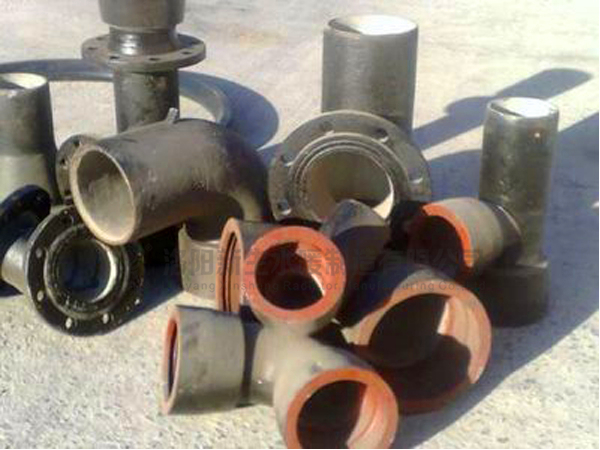Hello, Welcome to visit LuoYang Xinsheng Radiator Manufacturing Co.,Ltd Website。

Installation steps of ductile iron pipe
1. Identify the mounting surface
According to the design of the observer, level gauge to find the installation surface. The bottom of the ditch should be neat and tidy, avoid placing the ductile iron pipe on the convex surface of the bottom stone.
2. Down tube
The direction of water flow is closely related to the direction of the socket. Normally, the direction of water flow is from the socket to the socket. However, in the case of a large slope, the socket should be upward, and the installation should be carried out from bottom to top. When laying down the ditch, avoid strong collision with the bottom and wall.
3. Socket cleaning
Carefully clean the inside of the socket, especially where the rubber sealing ring is placed, and do not leave paint, soil, sand and other residues.
4. Socket cleaning
Clean the smooth edge of the socket and lubricate it with grease.
5. Draw a standard line
The sockets of the company's products are generally marked with installation lines. During the construction process, for the cut product, use a caliper to draw a standard line on the arch of the pipe. The distance between the standard line and the smooth edge of the pipe should be 5-10mm smaller than the depth of the corresponding socket.
6. Put the rubber sealing ring into the socket, check whether it is in good agreement, and then lubricate it with lubricating oil (other lubricating oil, oil, paint, etc. are not allowed). Except for small diameter pipes, do not lubricate the position of the rubber seal.
7. Connect
When connecting pipes, different tools should be used for pipes of different pipe diameters. Carefully insert the tube step by step until the standard line matches the front of the socket. If the resistance is too large when the pipe is inserted, stop immediately, pull out the pipe, check the position of the rubber seal ring and socket, find out the reason and deal with it properly, and then insert it. Then, insert the metal straight ruler into the annular space between the socket and the pipe wall until it touches the rubber seal ring. Check whether the pipes connected to each other are coaxial, otherwise, adjust the unevenness that may appear at the bottom of the trench.
8. Check
After is connected, use a thickness gauge to check the rubber seal groove along the entire arch back line to see if there is any possibility of air leakage. Air leakage will damage the seal.
9. Buried trench
For burial, use soil that does not contain sand, grass, tree roots, and debris, and the burial depth must be at least 200 mm higher than the upper bus bar of the pipe. The soil on both sides of the pipe should be compacted, and then another 200-300mm soil layer should be buried on the upper part of the pipe and compacted.
If you are interested in our products or services, you are welcome to contact us
PHONE:
+86-379-63482552
EMAIL:
1527377436@qq.com
ADDRESS:
No.2, steel Chengzhong Road, Dingding North Road, Luoyang
